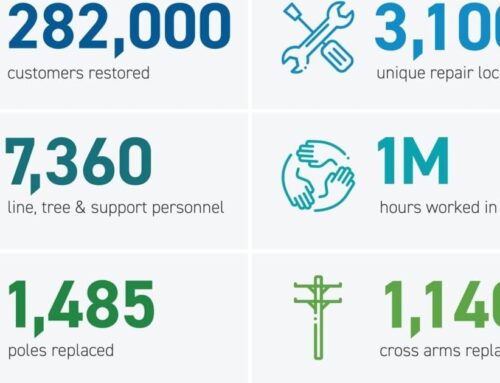Texas basketball player could be executed in Indonesia for cannabis edibles
October 4, 2025
Jarred Shaw (Dallas, 35) is a 6-foot-11 forward-center who played college basketball for the Oklahoma State Cowboys (2009–11) and the Utah State Aggies (2012–14). He went on to make a living as a professional player, though it was one of those hard-traveling, journeyman careers built on constant moves around the world. Undrafted in 2014 and unable to draw the attention of top European clubs beyond an initial stint in Ankara (2014–15), he went on to play in Argentina, Tunisia, Thailand, Japan, Uruguay, Venezuela, the Dominican Republic, Mexico, Beirut, and Indonesia — the country where he has played since 2022, suiting up for three different teams. The most recent: the Tangerang Hawks.
Shaw’s life takes a dramatic turn
There, in Indonesia, his career and his life have taken a dramatic turn. As detailed in a Guardian report in which Shaw tells his own story, he could be sentenced to death for possessing about $400 worth of cannabis edibles — in this case, gummy bears. He had received the illegal goods along with medication for his Crohn’s disease and was arrested in May by around ten plainclothes officers — a moment captured on social media — while picking up the package in his hotel lobby.
In a country where he seemed to have found stability — he was a league champion in 2023 and has scored more than 1,000 points over three seasons there — he already knows he’s been banned for life from the Indonesian Basketball League (IBL). But the situation is far more serious: he now faces a trial that could result in a lengthy prison sentence or, in the worst-case scenario, the death penalty.
Speaking from a prison on the outskirts of Jakarta, Shaw told The Guardian: “I use cannabis for medical reasons. I have an inflammatory condition called Crohn’s disease, which can’t be cured. There are no medications, and the only thing that helps my stomach pain is cannabis. I made a stupid mistake.” Normally, he explained, he uses the products in Thailand during the offseason, since that’s where he spends his breaks. But when his condition worsened, he broke the rules and ordered those 132 illegal gummy bears — in Indonesia, a country far less lenient with cannabis than Thailand.
While admitting his mistake, he insists it shouldn’t carry the death penalty or years behind bars. “I’ve never been through anything like this. They’re telling me I could spend my whole life in prison for some cannabis edibles… these months since I was arrested have been the worst of my life. My mind has been in a dark place. I feel alone and helpless. I didn’t even want to get out of bed.”
“Cannabis is a medicine”
His recovery, he says, began thanks to his faith and the prison’s permission to use the gym and leave the cell he shares with twelve other men. “I just turned 35, but I still feel young, and I’d love to keep playing basketball.” He also stresses that he doesn’t use cannabis recreationally: “It’s for anxiety, depression, insomnia, and Crohn’s disease. I don’t use it to party or have fun. It just eases my stomach pain — sometimes I can’t even keep food down. What they see as a drug, to me is medicine. It’s a cultural problem.”
Indonesia’s strict drug laws
In Indonesia, drug trafficking offenses can carry the death penalty. In 2016, one Indonesian and three foreign nationals were executed by firing squad, and there are currently around 500 prisoners — about 100 of them foreigners — on death row for drug-related crimes. Airport police have not ruled out the death penalty in Shaw’s case either: “We are still investigating. We want to uncover the international distribution network behind this case and stop it.”
The initial charge is for possession of one kilogram of cannabis. At his first court appearance, police presented 869 grams of gummy bears — merchandise worth around $400 on the market. Five months have now passed without another hearing, and Shaw remains in jail while raising funds for his defense. “They want to make it look like I’m some big-time dealer. But why would I want to sell cannabis here? It was only for personal use.”
Stephanie Shepard, an advisor with the Last Prisoner Project (LPP) — an organization that campaigns for the release of people imprisoned solely for cannabis-related offenses — has come to Shaw’s defense. “This case isn’t an isolated incident. Across the world, extremely harsh sentences are imposed for nonviolent cannabis offenses that pose no threat to public health. They go against the basic standards of human rights.”
“Cannabis can’t kill you, but possessing it can,” added Donte West, who works alongside Shepard at the LPP, in comments to The Guardian. “We need to pay close attention to this case and try to make it a precedent. Our focus is on bringing Jarred home to his mother.”
Get your game on! Whether you’re into NFL touchdowns, NBA buzzer-beaters, world-class soccer goals, or MLB home runs, our app has it all.
Dive into live coverage, expert insights, breaking news, exclusive videos, and more – plus, stay updated on the latest in current affairs and entertainment. Download now for all-access coverage, right at your fingertips – anytime, anywhere.
Search
RECENT PRESS RELEASES
Related Post




